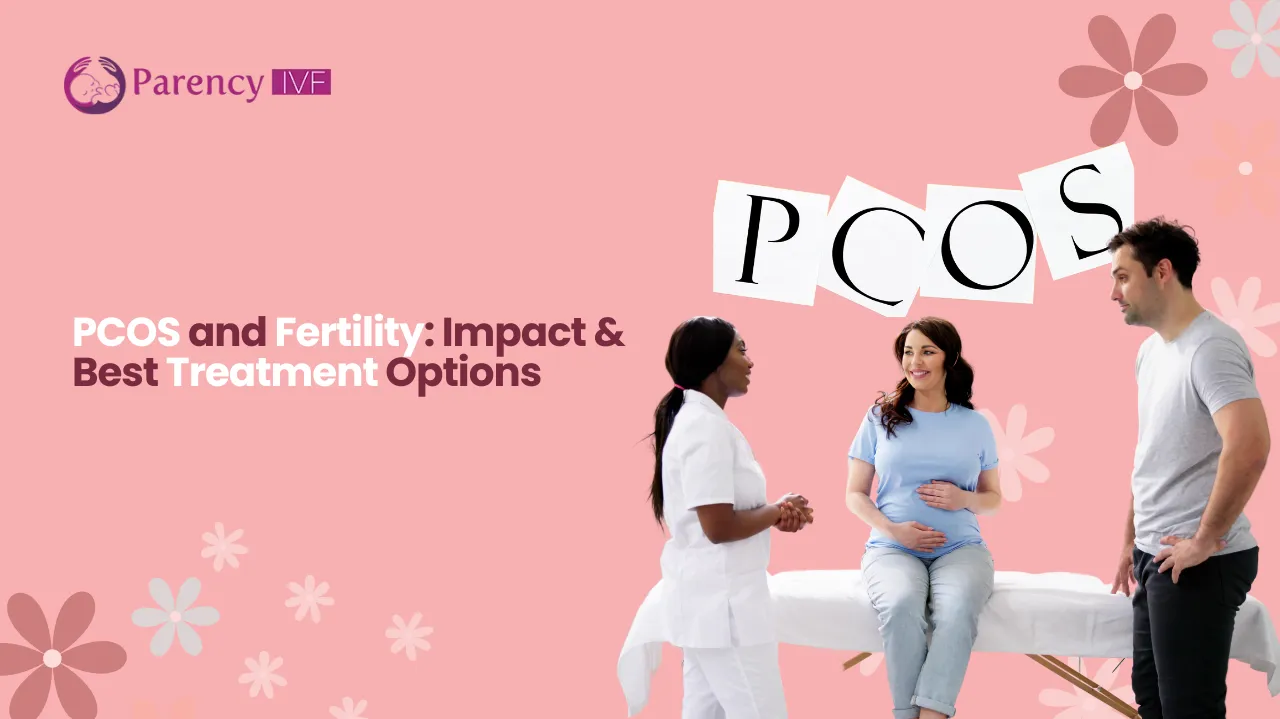



Every day, countless Indian women grapple with a hidden battle: PCOS, affecting nearly 1 in 5, casts a long shadow over their dreams of motherhood. This common hormonal disorder disrupts the delicate balance of hormones and interferes with regular ovulation, making the path to conception especially challenging. In this blog, we'll delve into how PCOS impacts fertility by examining its symptoms and underlying mechanisms and explore a comprehensive range of treatment options, from lifestyle changes and ovulation-inducing medications to cutting-edge assisted reproductive technologies, all designed to enhance your PCOS pregnancy success.
PCOS is a hormonal disorder that affects the normal functioning of the ovaries. Women with PCOS often experience irregular or absent menstrual cycles, making it challenging for them to ovulate regularly. Elevated levels of androgens (male hormones) and insulin resistance, common in PCOS, further disrupt the hormonal balance necessary for conception. These factors combine to reduce fertility, underscoring the importance of timely diagnosis and appropriate management for women wishing to start or grow their families.
For many women with PCOS, menstrual cycles can be highly unpredictable, sometimes ranging from 35 days to over 90 days or even absent altogether. This irregularity often indicates that ovulation, the process of releasing a mature egg, is not occurring consistently. Without regular ovulation, there is no reliable fertilization window, making planning for conception particularly challenging. Consistent cycles are crucial for tracking fertility and timing interventions effectively, so irregular or absent periods directly hinder the ability to conceive naturally.
Hirsutism is a common symptom of PCOS, where elevated levels of androgens (male hormones) lead to unwanted hair growth in areas such as the face, chest, and abdomen. This imbalance affects appearance and is a marker of underlying hormonal disruption that can interfere with the normal reproductive cycle. High androgen levels can disrupt the delicate balance required for regular ovulation, thereby reducing fertility. Managing hirsutism through lifestyle modifications or medical treatments helps restore hormonal balance and improve reproductive outcomes.
Many women with PCOS experience weight gain and find it challenging to lose weight, largely due to insulin resistance and hormonal imbalances. Insulin resistance means the body is less able to use insulin effectively, which often leads to higher insulin levels that can promote fat storage, especially around the abdomen. This weight gain can exacerbate hormonal imbalances and further impair ovulation. Even a modest weight loss has been shown to improve insulin sensitivity and help regulate menstrual cycles, enhancing fertility and overall reproductive health.
A hallmark of PCOS is the presence of multiple small ovarian cysts, which can be detected via ultrasound. These cysts are typically immature follicles that have not been properly ovulated. Rather than developing into a single dominant follicle that releases an egg, the follicles accumulate, creating the characteristic "string of pearls" appearance on imaging. The accumulation of these cysts interferes with normal ovarian function and disrupts the regular cycle of egg maturation and release. As a result, the chances of successful ovulation and conception are significantly reduced.
Together, these symptoms underscore the complex nature of PCOS and its direct impact on fertility. Addressing each aspect through tailored treatment strategies is essential for improving reproductive outcomes and overall health.
1. Lifestyle Modifications
2. Medications for Ovulation
3. Assisted Reproductive Technologies (ART)
PCOS-related infertility is a challenge, but it is highly treatable with the right approach. From lifestyle changes and targeted medications to advanced reproductive technologies, there are multiple paths to achieving PCOS pregnancy success. The key is working closely with your healthcare provider to create a personalized treatment plan that addresses your needs. Remember, early intervention can make a significant difference in overcoming fertility challenges.
Don't let PCOS hold you back from realizing your dream of parenthood. At Parency IVF, our expert team is here to design a personalized treatment plan just for you, combining the latest technologies with compassionate care. Contact us today and step confidently toward a brighter, fertility-friendly future.